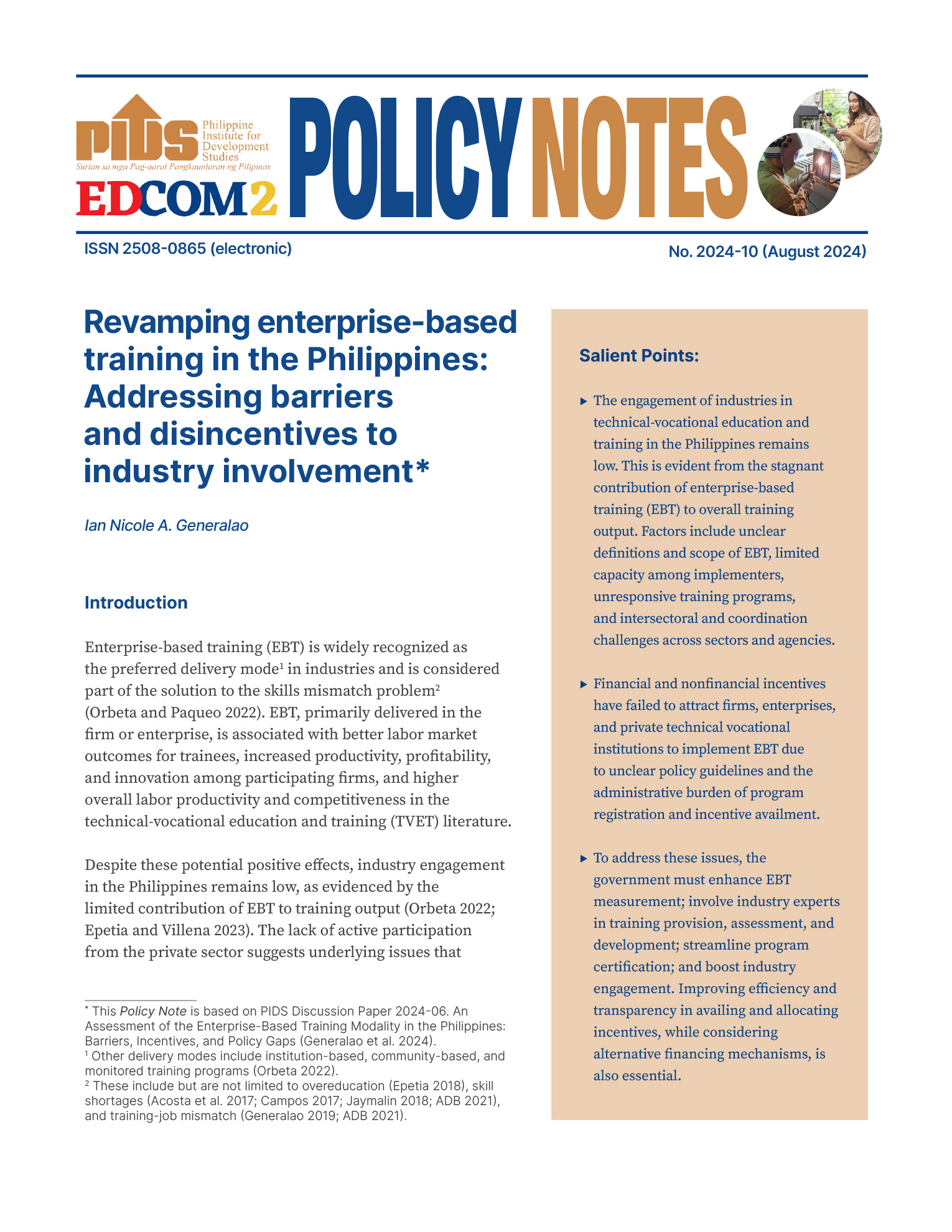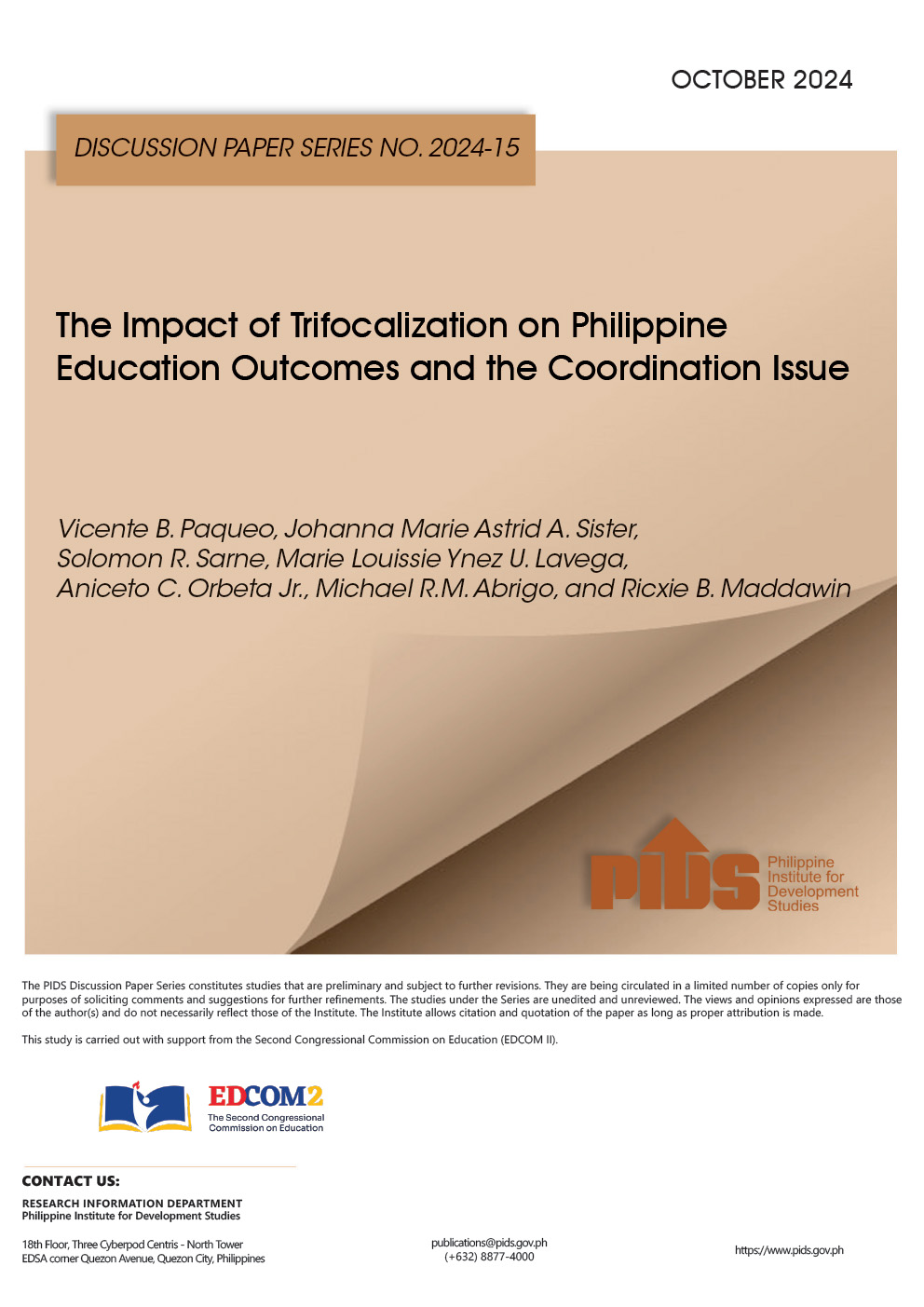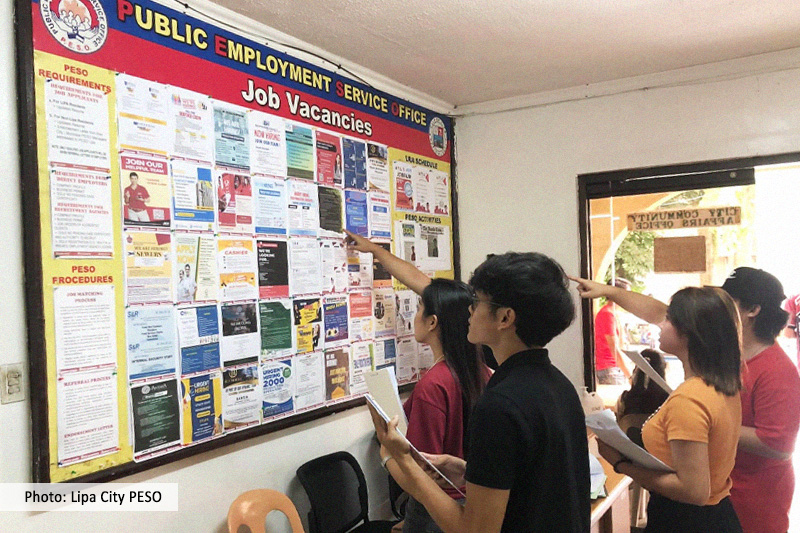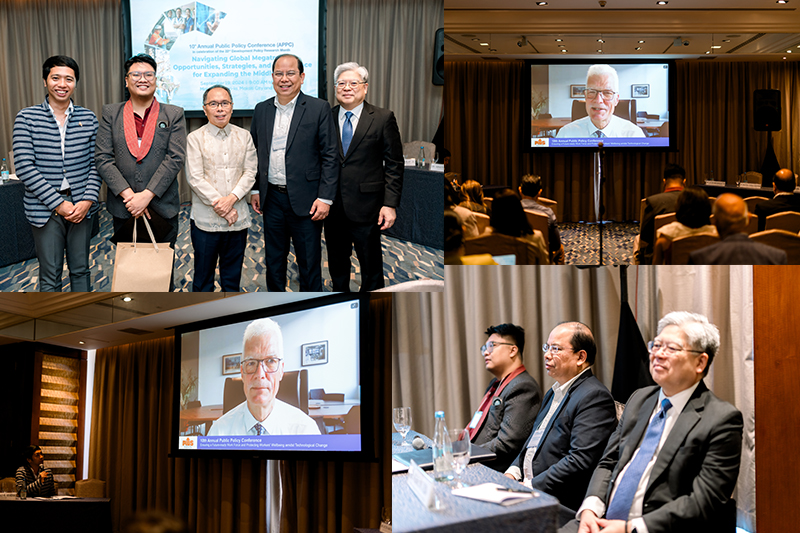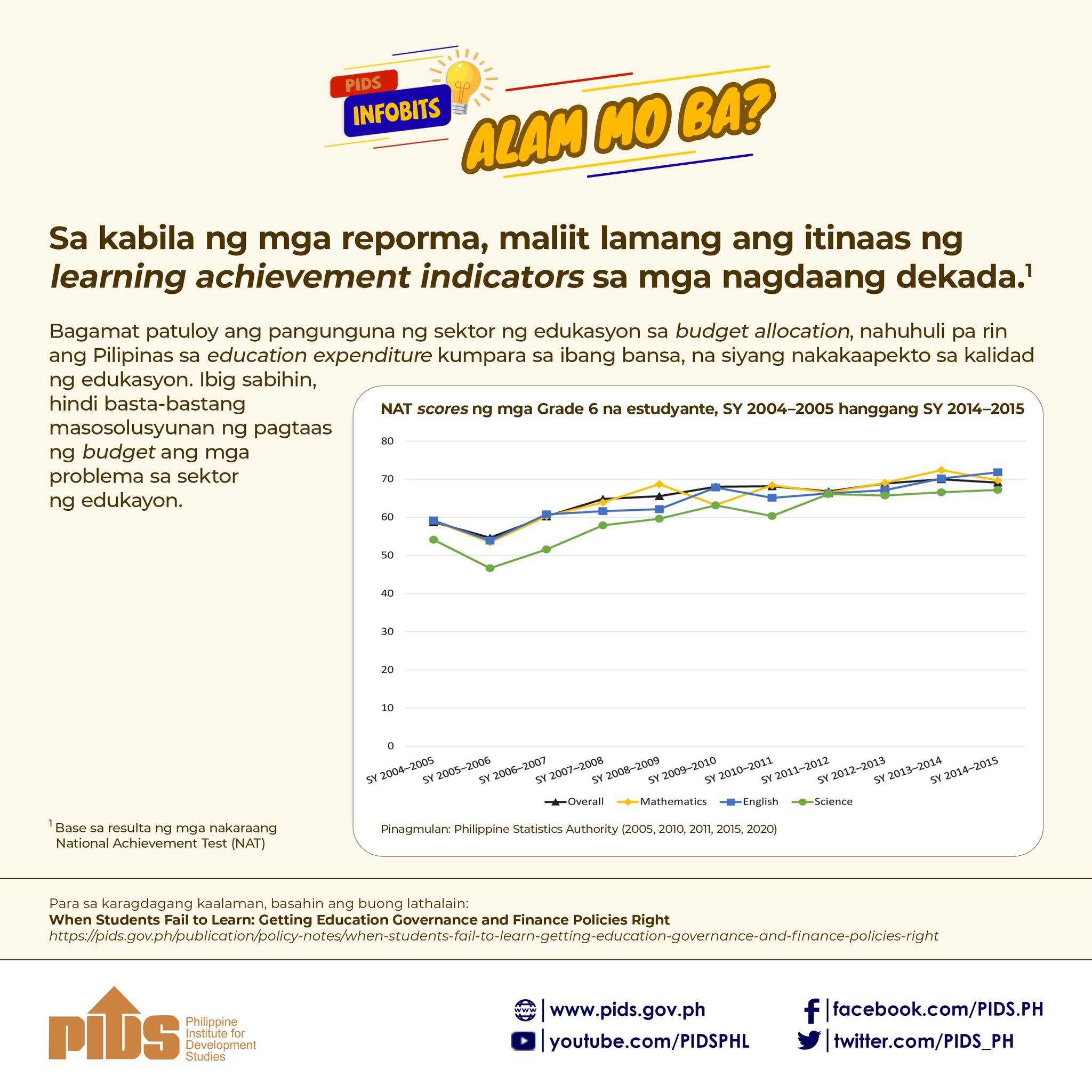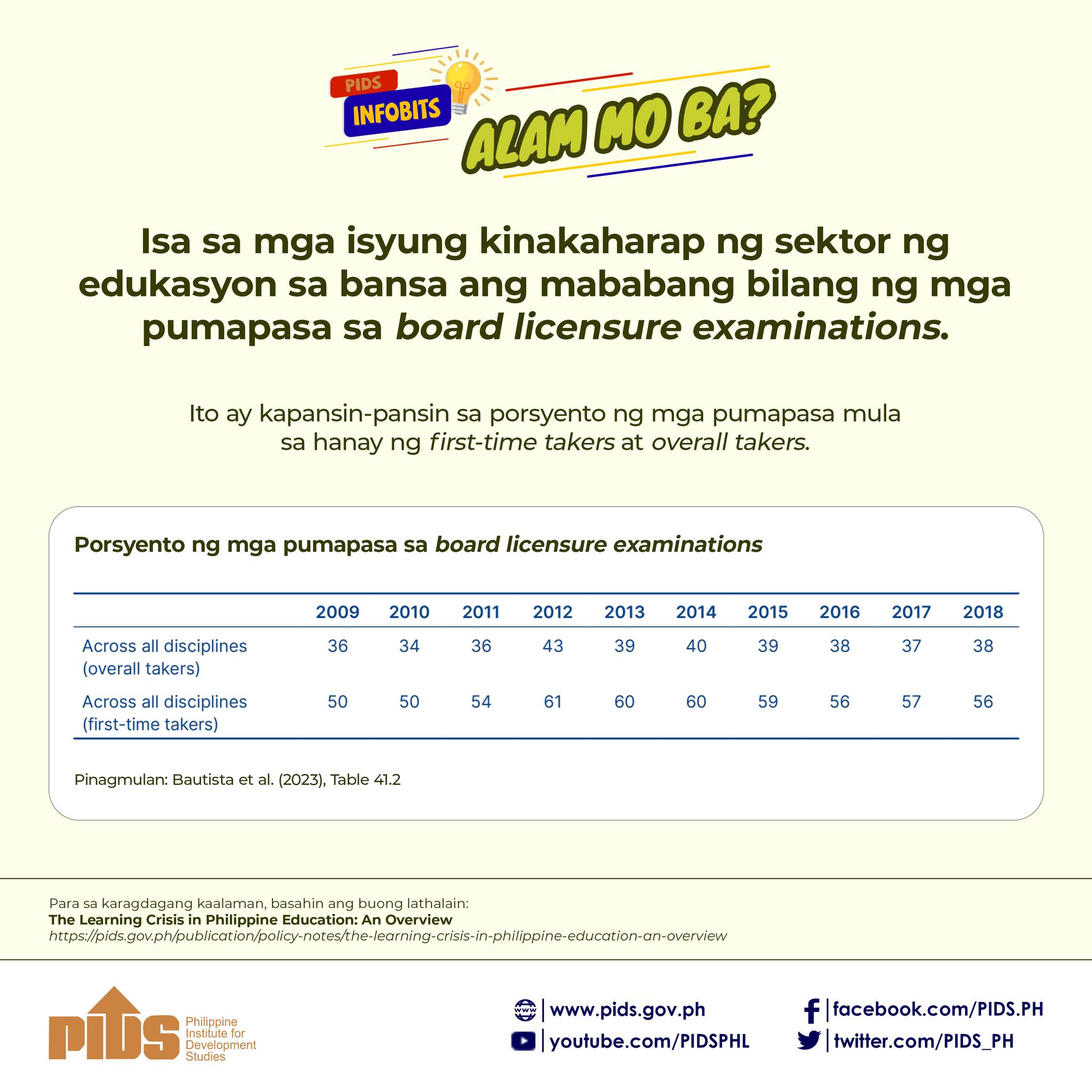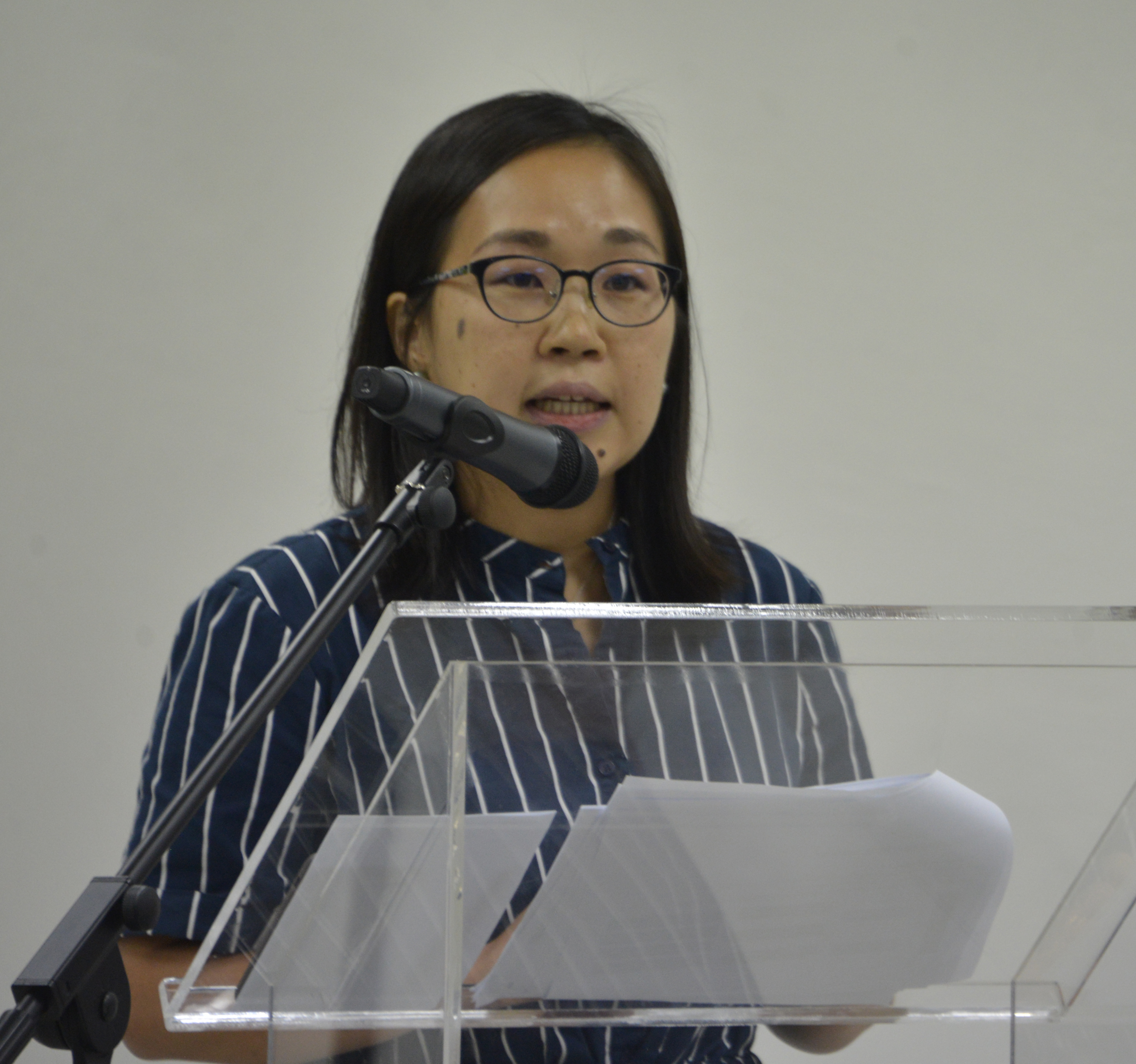
The Department of Education (DepEd) needs a lot of catching up in terms of improving the design of the Alternative Learning System (ALS) and encouraging out-of-school adults to participate in the program.
In a recent public seminar organized by state think tank Philippine Institute for Development Studies (PIDS), Takiko Igarashi, one of the authors of a World Bank report on the Philippines’ ALS, noted the low participation and passing rates in the ALS, which she said, are indications that the program is “not fully effective”.
The ALS is a parallel learning system in the Philippines that provides a practical option to the existing formal instruction. There are two major programs on ALS that are being implemented by DepEd. One is the Basic Literacy Program, which aims to eradicate illiteracy among out-of-school youth and adults by teaching basic literacy and numeracy. The other is the Continuing Education Program – Accreditation and Equivalency (A&E), which targets people who are functionally literate but did not complete basic education. The latter also offers programs at both the primary- and secondary-school levels.
According to Igarashi, there are around 6.6 million potential enrollees aged 15-30 to the ALS program. However, she noted that less than 10 percent of this number, or only about .6 million, were enrolled in the program in 2017. She further noted that of those who initially enrolled, only 60 percent attended classes regularly and only about 20 percent eventually passed the A&E exams.
The low participation and passing rates are even more pronounced in poorer communities. In the Autonomous Region in Muslim Mindanao (ARMM), for example, it was noted that only 4 percent of prospective learners were enrolled in the program in 2017 and only 1 percent of them eventually passed the A&E exams.
The report attributed the low participation rate to high opportunity costs of attending ALS programs given that many of these potential enrollees are parents who attend to their children or adults who are working. “Attending ALS classes reduces the time available for paid work, childcare, and household labor for most participants,” Igarashi explained.
In addition, the study also encouraged DepEd to focus on providing skills training that can help ALS participants to get a better job in the future. This way, the “high uncertainty of economic returns” of participating in the ALS will be greatly reduced.
"DepEd should assess the current skills trainings offered by ALS facilitators and explore potential training partnerships with local industries and relevant government agencies such as the Technical Education and Skills Development Authority and the Department of Labor and Employment,” the study recommended.
Meanwhile, the study also took note of the challenges faced by the DepEd in administering the ALS program given the diverse communities across the Philippines, with participants having different conditions and motivations for joining the program.
A major roadblock faced by DepEd is on financing the ALS. Unlike in formal public schools where operating expenses are funded by the national budget, the DepEd finances the ALS by providing resources to individual facilitators. The study noted that 60 percent of the budget is spent by facilitators on transportation and basic supplies such as paper and folders and little is left to buy other learning materials.
"The availability of ALS learning modules are a persistent challenge on the ground, with 70 percent of facilitators without enough copies for their students. As a result, only 1 in every 3 active learners can take home the modules for self-learning," Igarashi explained.
To solve the learning module shortage, the study urged the DepEd to improve the procurement system for the ALS. It suggested that by decentralizing the provision of learning modules, DepEd could respond more quickly to requests from facilitators in the field.
Igarashi also pointed out the sharp contrast in the quality of ALS learning facilities in urban and remote areas. Given the strong association between well-equipped facilities and attendance and completion of ALS learners, it is not surprising to note that participation and completion rates in areas like ARMM are much lower compared to that of the National Capital Region, she stressed.
Thus, the study highlights the need to maximize the use of public schools that are well-equipped for ALS classes and at the same time improve information drive about the program. It also underscores the importance of regular and rigorous monitoring and evaluation to ensure that the program is meeting its objectives. ###
In a recent public seminar organized by state think tank Philippine Institute for Development Studies (PIDS), Takiko Igarashi, one of the authors of a World Bank report on the Philippines’ ALS, noted the low participation and passing rates in the ALS, which she said, are indications that the program is “not fully effective”.
The ALS is a parallel learning system in the Philippines that provides a practical option to the existing formal instruction. There are two major programs on ALS that are being implemented by DepEd. One is the Basic Literacy Program, which aims to eradicate illiteracy among out-of-school youth and adults by teaching basic literacy and numeracy. The other is the Continuing Education Program – Accreditation and Equivalency (A&E), which targets people who are functionally literate but did not complete basic education. The latter also offers programs at both the primary- and secondary-school levels.
According to Igarashi, there are around 6.6 million potential enrollees aged 15-30 to the ALS program. However, she noted that less than 10 percent of this number, or only about .6 million, were enrolled in the program in 2017. She further noted that of those who initially enrolled, only 60 percent attended classes regularly and only about 20 percent eventually passed the A&E exams.
The low participation and passing rates are even more pronounced in poorer communities. In the Autonomous Region in Muslim Mindanao (ARMM), for example, it was noted that only 4 percent of prospective learners were enrolled in the program in 2017 and only 1 percent of them eventually passed the A&E exams.
The report attributed the low participation rate to high opportunity costs of attending ALS programs given that many of these potential enrollees are parents who attend to their children or adults who are working. “Attending ALS classes reduces the time available for paid work, childcare, and household labor for most participants,” Igarashi explained.
In addition, the study also encouraged DepEd to focus on providing skills training that can help ALS participants to get a better job in the future. This way, the “high uncertainty of economic returns” of participating in the ALS will be greatly reduced.
"DepEd should assess the current skills trainings offered by ALS facilitators and explore potential training partnerships with local industries and relevant government agencies such as the Technical Education and Skills Development Authority and the Department of Labor and Employment,” the study recommended.
Meanwhile, the study also took note of the challenges faced by the DepEd in administering the ALS program given the diverse communities across the Philippines, with participants having different conditions and motivations for joining the program.
A major roadblock faced by DepEd is on financing the ALS. Unlike in formal public schools where operating expenses are funded by the national budget, the DepEd finances the ALS by providing resources to individual facilitators. The study noted that 60 percent of the budget is spent by facilitators on transportation and basic supplies such as paper and folders and little is left to buy other learning materials.
"The availability of ALS learning modules are a persistent challenge on the ground, with 70 percent of facilitators without enough copies for their students. As a result, only 1 in every 3 active learners can take home the modules for self-learning," Igarashi explained.
To solve the learning module shortage, the study urged the DepEd to improve the procurement system for the ALS. It suggested that by decentralizing the provision of learning modules, DepEd could respond more quickly to requests from facilitators in the field.
Igarashi also pointed out the sharp contrast in the quality of ALS learning facilities in urban and remote areas. Given the strong association between well-equipped facilities and attendance and completion of ALS learners, it is not surprising to note that participation and completion rates in areas like ARMM are much lower compared to that of the National Capital Region, she stressed.
Thus, the study highlights the need to maximize the use of public schools that are well-equipped for ALS classes and at the same time improve information drive about the program. It also underscores the importance of regular and rigorous monitoring and evaluation to ensure that the program is meeting its objectives. ###

